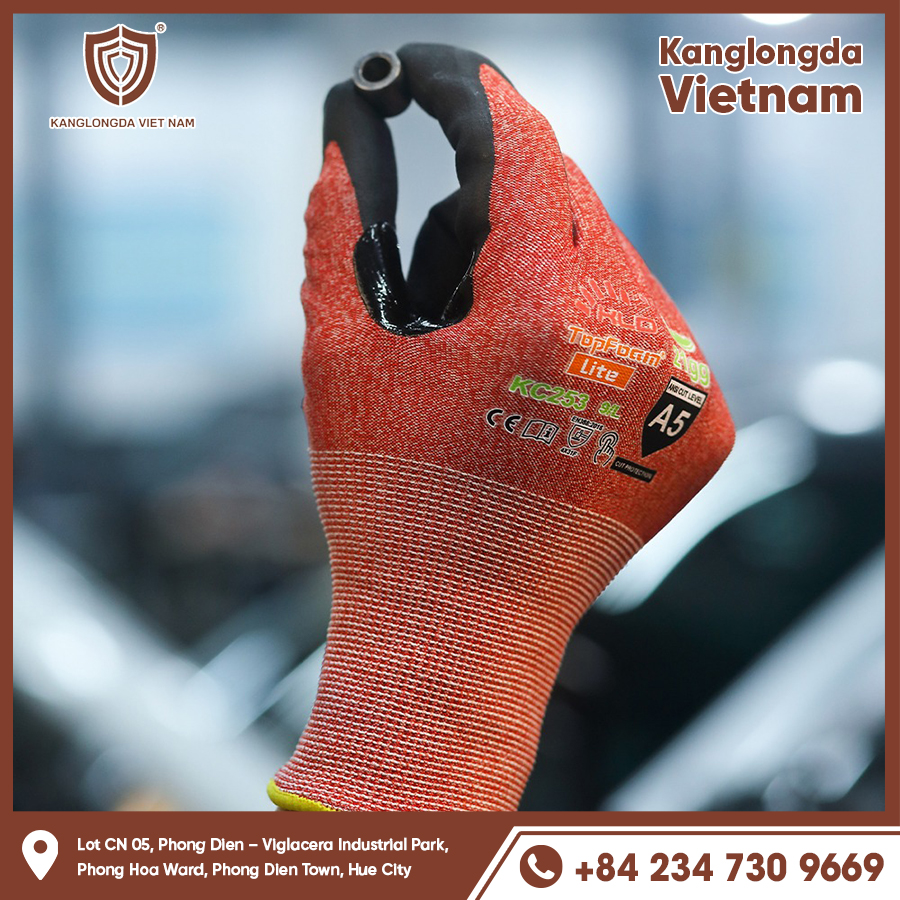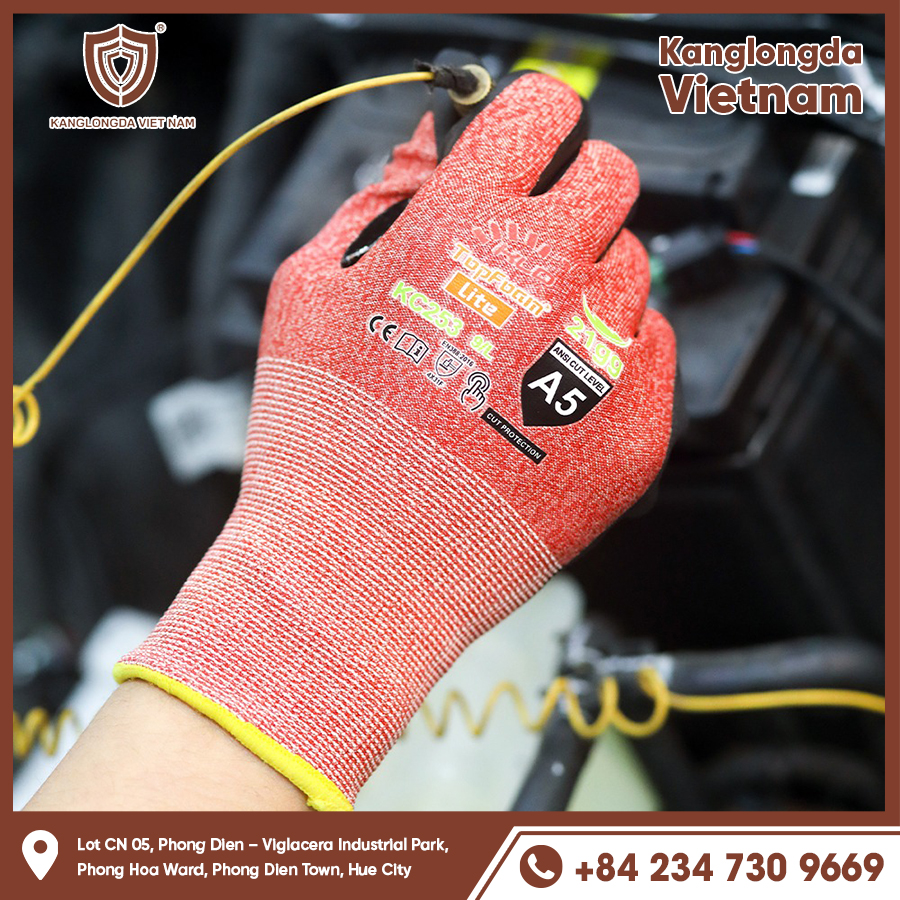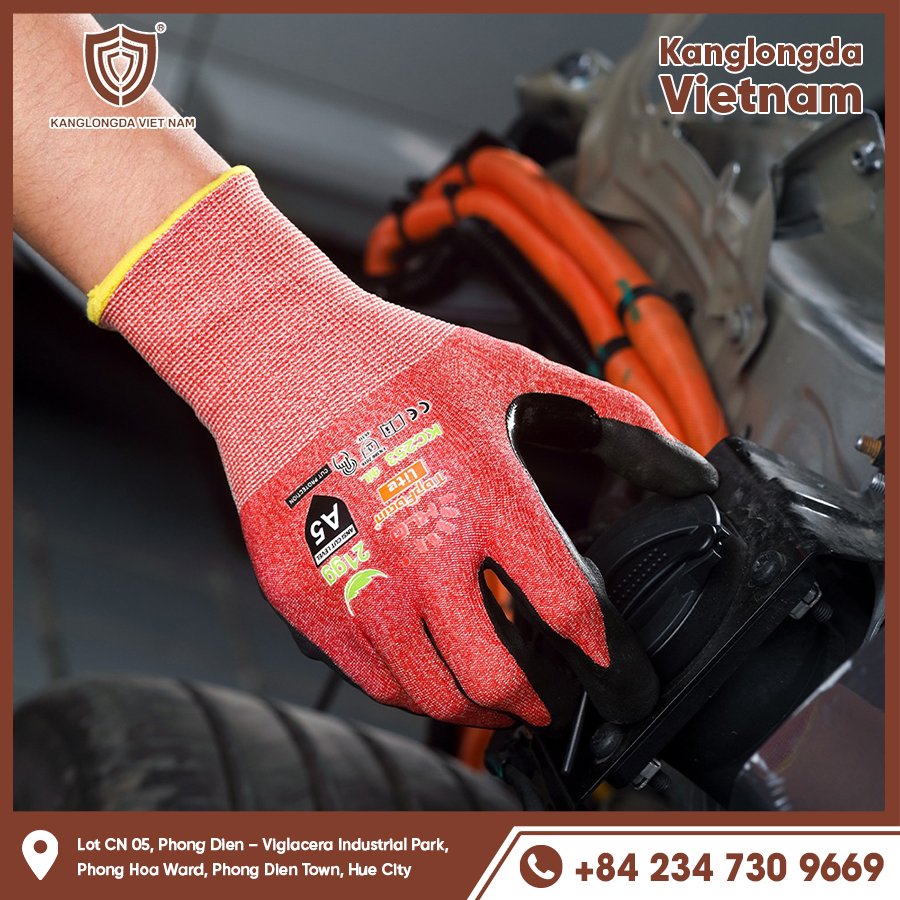Mechanics wear gloves are essential protective gear designed specifically to meet the demanding needs of automotive professionals, industrial workers, and DIY mechanics. These gloves provide vital protection against cuts, abrasions, chemical exposure, and burns, while maintaining dexterity and comfort during long hours of precise work. Whether you’re changing engine parts, handling sharp tools, or dealing with oils and solvents, the right gloves can significantly improve safety and efficiency. This comprehensive guide explores the features, types, applications, and buying considerations for mechanics wear gloves, helping you make an informed choice.

The Importance of Mechanics Wear Gloves in Workshop Safety
Protecting Against Injuries and Hazards
Hands are among the most vulnerable parts of the body in mechanical work. Cuts from sharp metal edges, abrasions from rough surfaces, punctures from tools, chemical burns from oils and solvents, and heat burns from engine components are common workplace hazards. Mechanics wear gloves act as a barrier, reducing these risks and helping prevent short-term injuries and long-term skin damage.
Enhancing Grip and Precision
Working with greasy or oily parts often makes gripping tools and components challenging. Mechanics gloves are designed with textured palms or special coatings to improve grip, allowing you to handle small screws, nuts, or delicate sensors without slipping. This grip enhancement also reduces hand fatigue and accidents caused by losing control of tools.
Providing Comfort for Extended Use
Extended periods of mechanical work can cause hand fatigue, calluses, blisters, and discomfort. High-quality mechanics gloves use breathable materials and ergonomic designs that allow for ventilation and flexibility. This keeps hands dry, comfortable, and less prone to fatigue, enabling mechanics to work longer and more efficiently.
Essential Features of Quality Mechanics Wear Gloves
Durable and Protective Materials
Mechanics gloves are typically made from synthetic leather, nitrile, neoprene, or other engineered fabrics that offer abrasion resistance, puncture protection, and chemical resistance. Synthetic leather is favored for its durability and flexibility, while nitrile coatings protect against oils and solvents. Neoprene gloves provide extra chemical and heat resistance for heavy-duty tasks.
Ergonomic Design and Flexibility
A well-designed mechanics glove contours to the natural shape of the hand with pre-curved fingers and stretch zones. This ergonomic fit reduces hand fatigue and allows for precise movements, essential when working with small parts or intricate systems. Reinforced palms and fingertips add durability without sacrificing flexibility.
Chemical and Heat Resistance Features
Many mechanics gloves include chemical-resistant coatings or liners that protect against exposure to automotive fluids such as gasoline, brake fluid, oil, and grease. Heat-resistant gloves offer protection from hot engine parts or welding sparks. These features extend glove lifespan and provide safety in hazardous conditions.
Popular Types of Mechanics Wear Gloves and Their Applications
Synthetic Leather Mechanics Gloves
These gloves offer a great balance of durability, flexibility, and breathability. Synthetic leather mimics the toughness of natural leather but typically costs less and allows for better airflow. Reinforced palms provide protection against abrasions during wrenching or tool handling. Suitable for general automotive repair and light industrial work.
Nitrile-Coated Gloves
Nitrile gloves are popular for their resistance to oils, solvents, and punctures. When coated on nylon or polyester bases, they combine flexibility with a tacky grip, making them perfect for working with greasy or oily parts. These gloves are widely used in automotive maintenance and assembly line jobs.
Neoprene and Heavy-Duty Gloves
Thicker neoprene gloves are designed for protection against harsh chemicals, oils, and moderate heat. These gloves are ideal for engine cleaning, chemical handling, or industrial environments where extra durability and safety are paramount. They often include reinforced knuckles and palms for impact resistance.

How to Choose the Right Mechanics Wear Gloves
Identify Your Work Environment and Hazards
Consider the specific tasks you perform regularly. Are you exposed to sharp edges, chemical fluids, heat, or heavy impacts? Light-duty synthetic leather gloves may suffice for basic repairs, while more demanding jobs require gloves with chemical resistance or impact protection.
Focus on Proper Sizing and Fit
Glove fit is crucial for both safety and comfort. A glove that is too tight restricts movement and causes fatigue, while one that is too loose compromises grip and precision. Most brands provide detailed sizing charts—measure your hand circumference and length to select the right size. Trying gloves on before buying is highly recommended.
Additional Features to Consider
Look for gloves that offer touchscreen compatibility if you need to use mobile devices during work. Adjustable wrist straps can improve fit and keep debris out. Ventilation zones help keep hands cool, and reinforced padding provides extra protection on high-wear areas.
Caring for and Maintaining Your Mechanics Wear Gloves
Proper Cleaning Techniques
Most synthetic and nitrile-coated gloves can be washed with mild soap and water. Avoid bleach or harsh chemicals which can degrade glove materials. Air-dry gloves thoroughly before use; avoid machine dryers as excessive heat can cause shrinkage or damage.
Inspecting Gloves for Wear and Damage
Regularly check your gloves for holes, tears, thinning material, or loose stitching. Damage reduces the gloves’ protective capabilities and increases injury risk. Replace gloves immediately if any significant wear is detected.
Storing Gloves Correctly
Store gloves in a cool, dry place away from direct sunlight, heat, or chemical exposure. Proper storage preserves glove integrity and prolongs their usable life. Avoid folding or compressing gloves for extended periods.
Benefits of Using Mechanics Wear Gloves
Enhanced Safety and Injury Prevention
The primary benefit of mechanics gloves is the protection they offer. Gloves help avoid common injuries such as cuts, burns, scrapes, and chemical exposure that can cause serious damage to hands.
Improved Productivity and Efficiency
Gloves designed for mechanics improve grip and comfort, reducing hand fatigue and making tasks easier and faster to perform. This can lead to better work quality and shorter project times.
Long-Term Cost Savings
Investing in quality gloves reduces medical bills related to hand injuries and limits downtime caused by hand pain or accidents. Durable gloves also reduce the frequency of replacement, saving money in the long run.
Comparing Top Mechanics Wear Glove Brands
Mechanix Wear
Known worldwide for innovation, Mechanix Wear offers gloves with ergonomic designs, durable materials, and models tailored to various applications from automotive to tactical use. Their gloves are widely used by professionals due to their reliability and comfort.
Ironclad
Ironclad gloves focus on heavy-duty protection and durability, making them popular in construction and mechanical trades. They feature reinforced padding and abrasion-resistant materials for tough environments.
Milwaukee
Milwaukee gloves are designed for comfort and functionality, often featuring touchscreen capability, padded palms, and adjustable wrist closures. They cater well to mechanics who need dexterity and protection.
Real-World Feedback and Customer Experiences
Professional Mechanics’ Opinions
Many professionals emphasize the importance of gloves that do not hinder their ability to handle small parts or tools. They appreciate gloves that are durable, breathable, and fit well for extended use without fatigue.
DIY Enthusiasts’ Reviews
Hobbyists and weekend mechanics value gloves that keep their hands clean and protected from minor cuts or scrapes. Affordable, flexible gloves with good grip are often preferred.
Industrial Workers’ Insights
Workers in factories and maintenance roles highlight gloves that can withstand repeated use and exposure to harsh chemicals, while still allowing precise movements.

Mechanics wear gloves are a vital component of any mechanic’s or DIYer’s toolkit. Selecting gloves that provide adequate protection, comfort, and dexterity can significantly improve your safety and work quality. Consider the nature of your work, environmental hazards, and glove features before purchasing. Proper care and maintenance ensure your gloves last longer and continue to provide the necessary protection. Whether you’re a professional mechanic or a casual hobbyist, the right pair of mechanics gloves is an investment in your hand safety and overall efficiency






